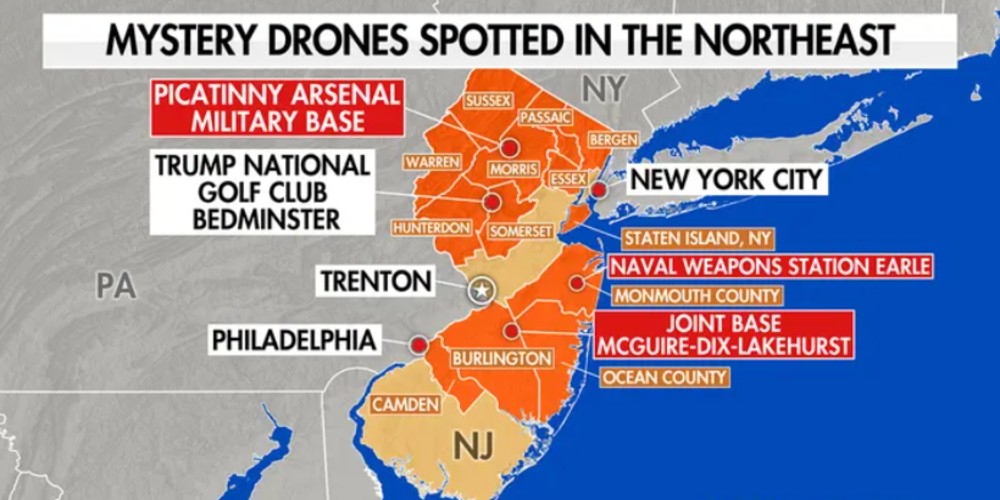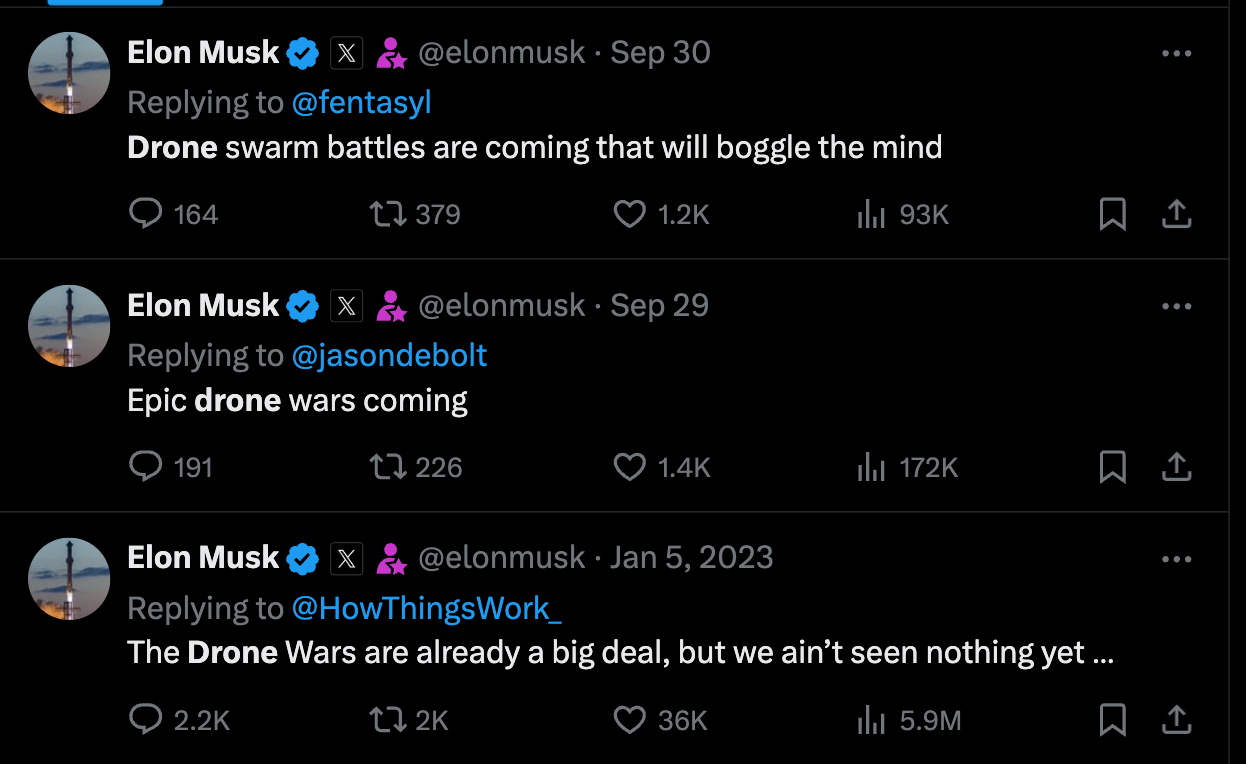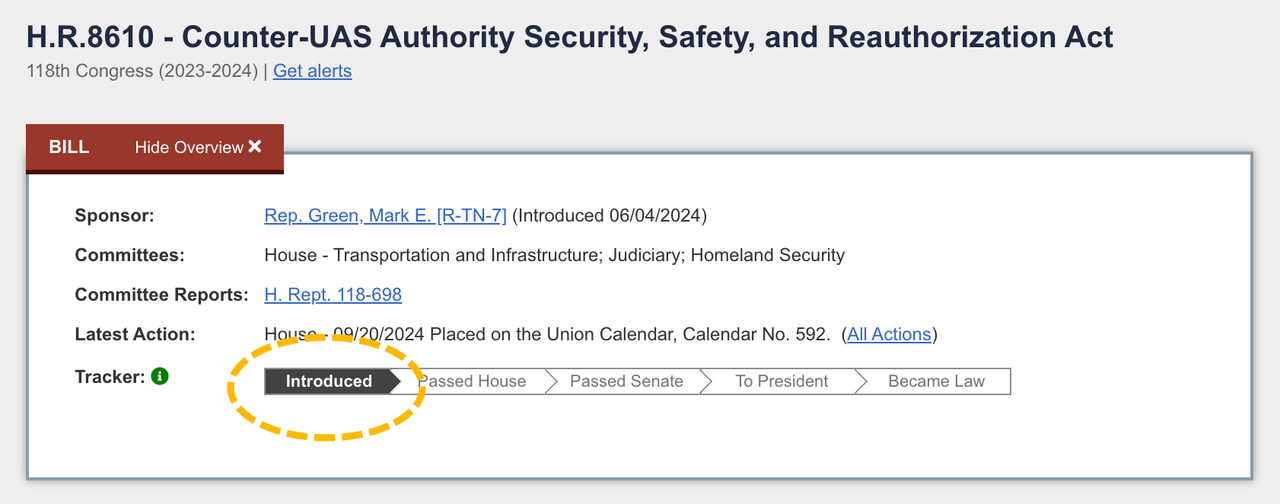(Zero Hedge)—A series of drone sightings over New Jersey that began in mid-November has left residents and lawmakers spooked about the possibility of foreign adversaries breaching US airspace with drone swarms. While officials have attempted to reassure the public, some lawmakers have stoked fear, leading to widespread panic on social media, with people interpreting anything moving in the night sky as a potential drone (even commercial jets and stars).
Days ago, the FBI and the US Homeland Security Department released a statement indicating, “We have no evidence at this time that the reported drone sightings pose a national security or public safety threat or have a foreign nexus.”
“Historically, we have experienced cases of mistaken identity, where reported drones are, in fact, manned aircraft,” the federal agencies said.
White House national security communications adviser John Kirby said many of the purported drone sightings are commercial jets with no evidence of a national security or public safety threat.
If actual ‘truck-sized’ drones (some say Iranian origin) were flying in some of the world’s most restricted airspace, let’s use common sense—the Pentagon would have scrambled F-22s and F-35s on the East Coast almost immediately. Since that hasn’t happened (as far as we know), we can’t help but be suspicious about the whole drone situation. Additionally, no private satellite data shows that Iranian drone carriers are parked off the coast; in fact, these vessels are located 7,500 miles away.
Let’s take a step back and review some of Elon Musk’s tweets on X:
- Sept. 30: “Drone swarm battles are coming that will boggle the mind”
- Sept. 29: “Epic drone wars coming”
- Jan. 5, 2023: “The Drone Wars are already a big deal, but we ain’t seen nothing yet …”
What did Elon know ahead of time?
Even President-elect Trump wrote on the Truth Social platform: “Can this really be happening without our government’s knowledge? I don (sic) think so! Let the public know, and now. Otherwise, shot (sic) them down!!! DJT.”
Fox News reporter Bill Melugin asked Musk on X his thoughts on the situation… “Alien spaceships controlled by Iran obv,” Musk replied.
Alien spaceships controlled by Iran obv
— Elon Musk (@elonmusk) December 13, 2024
No actual drones have been recovered, and footage on X frequently features amateur videos mistaking drones for commercial aircraft. Furthermore, as far as we know, the FAA has not closed large sections of airspace or diverted planes. While we are not dismissing the possibility of foreign adversary-operated drones breaching heavily restricted airspace, we are pointing out the extraordinary hype on social media (with no substance), which has caused widespread panic with some users on X calling this a “psyop.”
This is a psyop in and out. I have been tracking flights in and out of the NY, NJ region while these drones were in the sky, and not a single airspace alert or diversion was issued for flights passing overhead. If the US government suspected foreign controlled, possibly hostile,… pic.twitter.com/ilmrqiGKB2
— Kobus Swart (@k0busswart) December 11, 2024
Is this the cause of the drone uproar? The FAA reauthorization act of 2018 expires on Dec 20th. The “replacement” being pushed is a bigger grab at taking our freedoms.
New H.R.8610 (Counter-UAS Authority Security, Safety, and Reauthorization Act of 2024) which will include… https://t.co/UtNSGZ2IGY
— B Husker (@blittle47) December 14, 2024
The "FAA Reauthorization Act of 2018" expires on December 20th of this year.
So the Federal Government is literally using a terrorism drone mystery psyop against you to manipulate Congress into passing the new H.R.8610 (Counter-UAS Authority Security, Safety, and…
— Wyatt (@austerrewyatt1) December 14, 2024
— Bob's News (@dyversityhire) December 14, 2024
X user mcm_ct_usa makes the point the purported drone sightings could be a “psyop against you to manipulate Congress into passing the new H.R.8610 (Counter-UAS Authority Security, Safety, and Reauthorization Act of 2024) which will include appropriations and enhanced government powers to control you, and they’re even going so far as to use it to push for acts of war against other countries.”
DRONE MYSTERY SOLVED
The "FAA Reauthorization Act of 2018" expires on December 20th of this year.
So the Federal Government is literally using a terrorism psyop against you to manipulate Congress into passing the new H.R.8610 (Counter-UAS Authority Security, Safety, and… https://t.co/4to0q3xx15
— @mcm_ct_usa (@mcm_ct_usa) December 14, 2024
It’s coincidental that last week, a Homeland Security joint subcommittee held a hearing on H.R.8610, the Counter-UAS Authority Security, Safety, and Reauthorization Act. This bill would renew and reform counter-UAS legal authorities and strengthen the FAA’s oversight powers of drones.
“The reason we need legal authority is that without it, use of the most effective types of drone detection and counter-drone technologies could violate criminal laws, including those that prohibit destroying or disabling aircraft in flight and intercepting signals and communications,” said Brad Wiegmann, the DOJ’s deputy assistant attorney general for national security.
With current drone-countering authorities set to expire on Dec. 20, the sudden surge in purported drone sightings and the accompanying MSM and social media panic might make a bit more sense—as an effort to push for the reauthorization of Orwellian drone laws.










